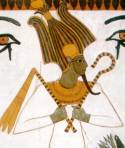Texas Board of Education - Bad Results for Science Standards
 Man, this is frustrating. There's been quite a bit of discussion recently over a small phrase in the current Texas science standards, whether to teach the "strengths and weaknesses" of scientific theories. I wrote a blog entry specifically about that language, as well as several related entries about the Board of Education (election results, teach 'both' sides, review panel, shenanigans, and Chris Comer). Basically, I considered this a rather small issue - the language has been on the books for over a decade, it doesn't explicitly call for teaching creationsim, and competent teachers are going to teach science well, anyway. The only problem is that it opens a loophole for incompetent teachers to bring up bogus claims.
Man, this is frustrating. There's been quite a bit of discussion recently over a small phrase in the current Texas science standards, whether to teach the "strengths and weaknesses" of scientific theories. I wrote a blog entry specifically about that language, as well as several related entries about the Board of Education (election results, teach 'both' sides, review panel, shenanigans, and Chris Comer). Basically, I considered this a rather small issue - the language has been on the books for over a decade, it doesn't explicitly call for teaching creationsim, and competent teachers are going to teach science well, anyway. The only problem is that it opens a loophole for incompetent teachers to bring up bogus claims.
Well, with as much as people have concentrated on the "strengths and weaknesses" language, it seemed like a victory when the board voted (7-7) to keep the draft standards recommend by the expert panel of scientists and teachers, which instead used the language, "The student is expected to analyze and evaluate scientific explanations using empirical evidence, logical reasoning, and experimental and observational testing". However, that sense of victory was very short lived, when Don McLeroy managed to get language inserted into the standards questioning the very concept of common descent. See Steve Schafersman's post or the Texas Freedom Network's post for more details.
I had sent an e-mail to Gail Lowe hoping to influence her decision as one of her constituents. Unfortunately, I don't think I had any effect, as she was one of the seven on the creationist side in all these votes. I'll keep on writing her for the final vote this March.
For anyone interested, my e-mail is included below the fold.
Mrs. Lowe,I am a resident of Wichita Falls, and as such, you are my representative on the Board of Education. I am also a parent, and thus have a keen interest in the quality of our schools. I am writing you regarding the upcoming vote on the state science standards.
The science standards cover a wide range of issues, which are all very important, but obviously, there has been a lot of discussion over the specific issue of evolution. An expert panel of teachers and scientists had issued revised standards back in September of 2008 that were applauded by science advocacy groups. The third draft, just released, has also been recognized as a good set of standards. Please, listen to the experts and keep these good standards.
You were quoted in an issue of Texas Monthly as saying, "The National Academy of Sciences has still stated that [evolution] is not a fact, and we don’t believe evolution ought to be taught as a fact." Perhaps Texas Monthly misrepresented you, or perhaps you were misinformed on the matter at the time, but the actual position of the National Academy of Sciences is that evolution is both fact and theory. Consider the following statement from the summary of their 2008 report, Science, Evolution and Creationism (available online at http://www.nap.edu/catalog.php?record_id=11876):
"Scientists no longer question the basic facts of evolution as a process. The concept has withstood extensive testing by tens of thousands of specialists in biology, medicine, anthropology, geology, chemistry, and other fields. Discoveries in different fields have reinforced one another, and evidence for evolution has continued to accumulate for 150 years."I could go on at length listing scientific organizations and agencies that have issued similar statements endorsing evolution, but that would only serve to make this letter longer than most people would care to read. Rather, I'll direct you to the following page on the website of the National Center for Science Education, which does list such statements:
http://ncseweb.org/media/voices/science
Similarly, I could go on at length describing all the evidence supporting evolution - both the fact of common descent with modification, and the various theories describing how evolution happens. Instead, I'll point out sources where you can find this information. A very good book that deals with paleontological evidence for evolution and contrasts it specifically against creationism is Donald Prothero's Evolution: What the Fossils Say and Why It Matters. In addition to the NAS report above, a few very informative websites include:
http://www.talkorigins.org/
http://evolution.berkeley.edu/
Discussing "strengths and weaknesses" or "strengths and limitations" of scientific theories may seem noble. After all, science is not a dogmatic acceptance of the teachings of your mentors - it's all about questioning the world around you and looking for evidence. However, if teachers and school districts use such language as an opening to try to discredit evolution, geology, astronomy, etc., by teaching the arguments of numerous creationists that have been rebutted many times over, then we're definitely doing our children a disservice. These arguments have been recycled so often that Mark Isaak was able to compile an "Index to Creationist Claims," listing rebuttals with sources:
http://www.talkorigins.org/indexcc/list.html
I hesitate to bring up the legal issues involved with the teaching of evolution, because for the science standards we should simply be concerned with teaching our children the best science that we can, which evolution most certainly is, and raising other points seems a bit of a distraction. However, it cannot be ignored that when other states have provided openings to allow the teaching of creationism and the related intelligent design, it has resulted in costly court battles. Consider the Kitzmiller et al. v. Dover trial in Pennsylvania, the Selman et al. v. Cobb County School District et al. trial in Georgia, or perhaps most relevant considering the "strengths and limitations" language that has been discussed, the Rodney LeVake v. Independent School District 656, et al. trial in Minnesota. These types of battles are completely unnecessary, as they could be avoided entirely simply by keeping science classes limited to well founded science.
One last thing I want to bring up, is to express my gratitude for the work you do as a member of the Board of Education. I realize that the Board of Education seldom makes headlines except in cases of controversy, and that the work you do is necessary to support our education system. So thank you for your service.
Please, support sound science education. Do not open up our schools to the types of pseudoscience that could damage our children's education, or result in court trials costing us taxpayers unnecessary money.
Sincerely,
Jeffrey R. Lewis

 This news has already made it around practically all of the science blogosphere, and I even saw it mentioned in a special breaking news type segment on the Science Channel last night, but it's so cool that I can't resist commenting on it.
This news has already made it around practically all of the science blogosphere, and I even saw it mentioned in a special breaking news type segment on the Science Channel last night, but it's so cool that I can't resist commenting on it. I wrote an e-mail to the
I wrote an e-mail to the  I'm a couple weeks getting to this, but here it is - the most popular pages from my site for last month. I think this is the first month since I've started keeping track that everything that made the list for the previous month made it back to the list the following month, though there was definitely some shuffling around.
I'm a couple weeks getting to this, but here it is - the most popular pages from my site for last month. I think this is the first month since I've started keeping track that everything that made the list for the previous month made it back to the list the following month, though there was definitely some shuffling around. In my essay,
In my essay,